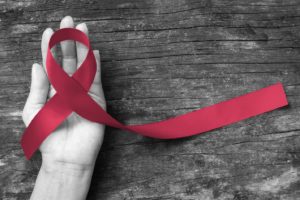 Preventive dental appointments are an essential part of maintaining oral health. During these checkups, a hygienist cleans your teeth and coaches you on how best to care for your smile at home. The dentist also examines your mouth and lets you know if you have cavities, gum disease, or other issues that require further treatment. But there is another big reason to be diligent about attending these routine appointments: oral cancer. The team at your dentist’s office is trained to spot warning signs of this disease — a simple screening could save your life!
Preventive dental appointments are an essential part of maintaining oral health. During these checkups, a hygienist cleans your teeth and coaches you on how best to care for your smile at home. The dentist also examines your mouth and lets you know if you have cavities, gum disease, or other issues that require further treatment. But there is another big reason to be diligent about attending these routine appointments: oral cancer. The team at your dentist’s office is trained to spot warning signs of this disease — a simple screening could save your life!
Think You’re Not at Risk? Think Again
Most people believe that oral cancer is a disease that affects only a few groups, such as heavy smokers and drinkers. While it is true that alcohol consumption and tobacco usage are huge risk factors for oral cancer, that doesn’t mean that other individuals aren’t going to develop this disease. If you’ve spent a lot of time out in the sun, or you have an immune system deficiency, you’re also at an increased risk.
Furthermore, it’s also wise to bear in mind that the human papilloma virus (HPV) is increasing the incidences of oral cancer among younger people. HPV is very common, and many individuals are not aware that they have it because it doesn’t always produce obvious symptoms.
Experts recommend that all adults, regardless of their age or lifestyle choices, get screened for oral cancer at least once a year. These regular checkups can aid in early detection and drastically increase the chances that a person will defeat their cancer.
The Oral Cancer Screening Process
Many dentists include an oral cancer screening as part of a routine exam. The process is simple, quick, and painless. Your dental hygienist or dentist will perform a thorough visual and tactile examination of your oral cavity and the surrounding structures. Some of the signs they’ll look for include:
- Unusual sores in the mouth
- Patches of white or red discolored tissue
- Lumps or thickening in the cheeks, throat, or tongue
- Unusual bad breath
- Loose teeth
It is also important to tell your dentist if you have noticed any of the following:
- Changes to your voice
- Persistent pain in your mouth
- Difficulty moving your jaw or tongue
- Difficulty swallowing
- Unexplained weight loss
If your dentist believes there is a possibility that you have oral cancer, they will refer you to a specialist to receive follow-up testing. A biopsy can provide an official diagnosis. If it turns out that you do have oral cancer, you can begin treatment right away.
When was the last time you got screened for oral cancer? If it has been more than a year, schedule a checkup with your dentist — a screening could save your life!
About the Author
Dr. Bryan Griffith has decades of experience in dentistry. He loves to help people achieve healthy, beautiful smiles. He is also concerned about his patients’ overall wellness, which is why our team also includes an oral cancer screening as part of every routine checkup. To schedule your next exam or to learn more about our practice, contact us at 606-874-9311.
